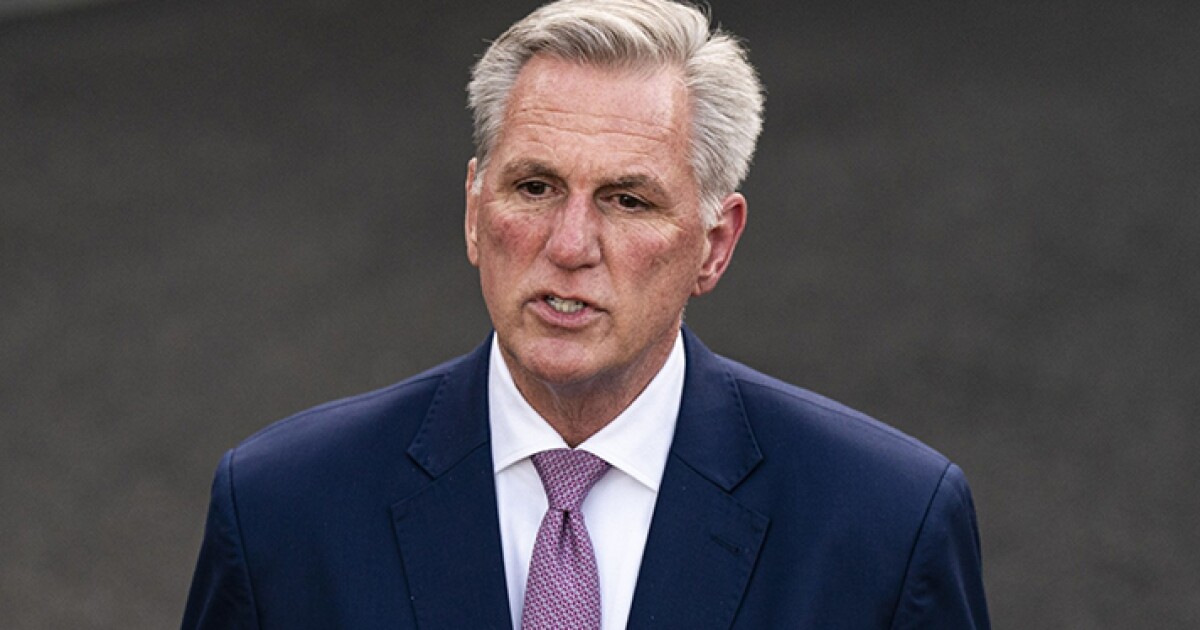House political dysfunction carries costs for municipal market
3 min read

The abrupt ouster of House Speaker Kevin McCarthy and the battle for his former position now underway carry little direct or immediate effect on the municipal market, but participants agree that the repercussions tilt negative for everyone from issuers to investors and bankers.
With the ink barely dry on Saturday’s continuing resolution to keep the government open for 45 days, the threat of a protracted shutdown is now firmly on the table. The political polarization could translate into less money for cities and states over the medium term, higher borrowing costs when they come to market and tougher legislative paths for muni priorities like tax-exempt advance refundings. And the prospect of the country losing its sole remaining triple-A rating, from Moody’s Investors Service, has inched closer to reality.
“Overall this just supports Fitch’s recent decision to downgrade the U.S. government,” said Lisa Washburn, managing director for Municipal Market Analytics. “With the political dysfunction, it’s very difficult to have a triple-A credit that seems to continually jump from crisis to crisis — and ones of their own making.”
Bloomberg News
Tuesday’s move by a small group of hard right Republicans to force out McCarthy — marking a first in U.S. history — means all work is on hold and “sets an even worse tone in the House than we had before which already was abysmal,” said Charles Samuels of Mintz Levin, counsel to the National Association of Health & Educational Facilities Finance Authorities.
McCarthy’s forced exit leaves a number of candidates scrambling to take his place. The House has recessed for the week and is set to take a vote on the new speaker next Wednesday.
Public finance advocates like Emily Brock of the Government Finance Officers Association will be watching to see which candidates have state or local experience that would help them understand issues facing the muni market.
“We drill down to see who has local service and if they don’t have that, have they at least had state service so they understand what issuance looks like, what grants look like,” Brock said.
As of Wednesday, House Majority Leader Steve Scalise, R-La., and Rep. Jim Jordan, R-Ohio, had formally jumped in the race. Both have experience serving in their respective state legislatures.
Rep. Tom Emmer, R-Minn., who as House Majority Whip is the chamber’s third top Republican and a possible contender, has both local- and state-level experience. Emmer served on city councils in the cities of Independence and Delano, and three terms in the Minnesota House of Representatives.
Emmer sits on the powerful House Financial Services Committee and the Subcommittee for Capital Markets.
The full slate of candidates and jockeying for position will likely continue through next week, and in puts a brake on any other House work, said Brett Bolton, vice president and head of government and industry relations at Bond Dealers of America.
“Until a speaker is named nothing can happen and there are so many breaches of trust within the Republican party and across the aisle with the Democrats,” Bolton said.
The political dysfunction boosts the chance of a government shutdown once funding runs out on Nov. 17, Bolton added.
A shutdown “could last weeks, or beyond,” he said. “Clearly we’re all a little clouded by what just happened, but I still don’t see a clear path forward to getting basic government activities done.”
The partisan and intra-party clashes make it harder to solve important issues like the government’s $33 trillion debt, said Washburn. With rates on the rise — which could be worsened by a possible Moody’s downgrade — debt service will begin to crowd out discretionary spending, she said.
“States and locals could feel a squeeze to the extent the federal government has to look at discretionary spending,” Washburn said.
Rising rates will also drive up borrowing costs, just as municipalities are hoping to leverage federal infrastructure money.
“That could act as a constraining factor on issuance,” Washburn added.
The path back to order in the House remains unclear and government funding and legislative work hangs in the balance, said Brock.
“Passing massive spending bills means there must be order, and the speaker must maintain that order,” Brock said. “This next candidate has to have an element of order that accompanies their leadership and I don’t know that anybody has that right now.”






